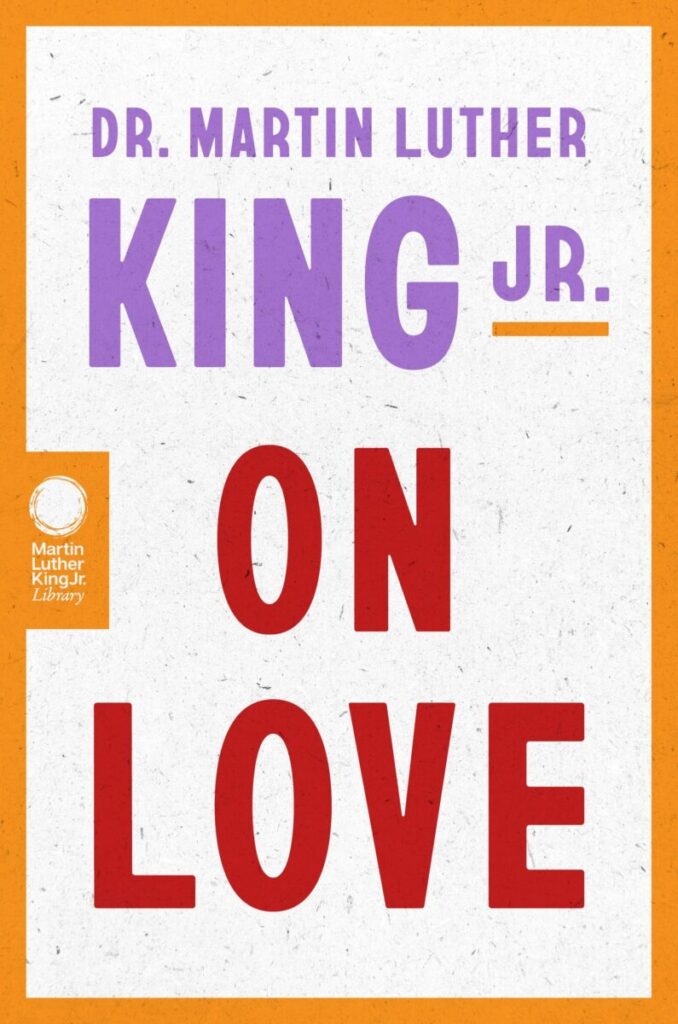By Terri Schlichenmeyer
Turn the volume up, please.
You need it louder because this is something you’ve been waiting to hear. You need to listen very closely; these words mean a great deal to you and they might change your life. As in the new book, “On Love” by Dr. Martin Luther King, Jr., the message beneath the message is the most important.
As the grandson and great-grandson of pastors and the son of the senior pastor at Ebeneezer Baptist Church in Atlanta, it may seem as though young Martin Luther King, Jr., born in 1929, already had his life set.

But when asked if those things were what he hoped he’d be honored for in years to come, King said he wanted to be remembered as “’someone who tried to love somebody.’”
His words, essays, letters, and speeches reflect that desire.
In a 1955 sermon in Montgomery, he used a parable to explain why white people needed love to gain compassion. In 1956, he wrote about the bombing of his home, telling his readers that no retaliation was needed, that to “confront the problem with love” was the righteous and better thing to do.
Later that year, he said, “I want you to love our enemies… Love them and let them know you love them.” And in November, 1956, he said, “… if you have not love, it means nothing.”
“Love is the greatest force in all the world,” he said in 1962.
He wrote a book on the subject, Strength to Love, in 1963.
In 1967, just months before his assassination, he said that “power at its best is love…”
When we talk about Dr. King’s life and his legacy, so much focus is put on his work on behalf of Civil Rights and equality that it’s easy to lose sight of the thing which he felt was more important. In “On Love,” any omission is rectified nicely.
This book, “excerpted to highlight the material where King specifically addressed the topic of love,” is full of pleasant surprises, words with impact, and thought-provokers. King’s speeches hammered home a need to love one’s enemies, woven into messages of gentle resistance and strength. He explained the different “levels” of love in a way that makes sense when related to equality and justice. The bits and pieces collected here will linger in reader’s minds, poking and prodding and reminding.
If your shelves are full of books about Dr. King, know that this is a unique one, and it’s perfect for our times, now. Don’t race through it; instead, savor what you’ll read and keep it close. “On Love” is a book you’ll want to turn to, often.




